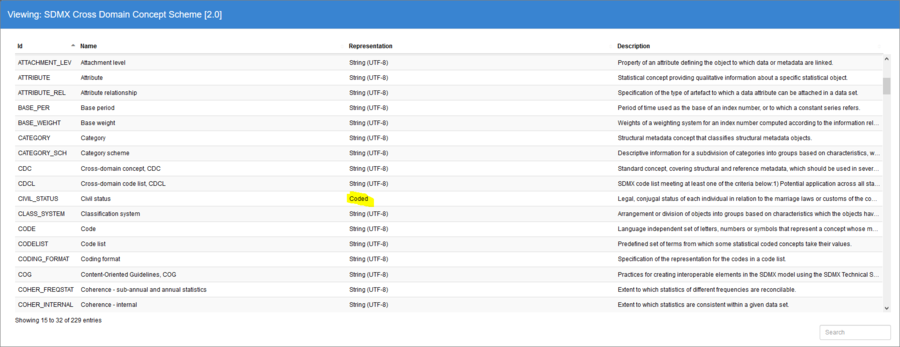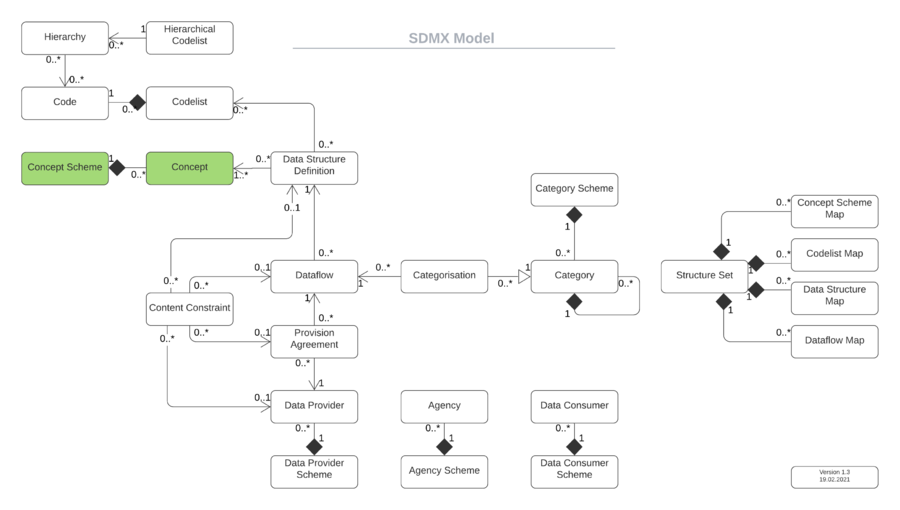Difference between revisions of "Concepts V10"
(→Overview) |
(→Overview) |
||
| Line 13: | Line 13: | ||
[[File:Concept3.PNG|900px]] | [[File:Concept3.PNG|900px]] | ||
| + | |||
| + | '''Using standardised Concepts wherever possible is good practice because it enables harmonisation of statistics i.e. it’s easy to compare statistics produced by different organisations if referenced concepts mean the same thing.''' | ||
==Context within the SDMX 2.1 Information Model== | ==Context within the SDMX 2.1 Information Model== | ||
[[File:Concept1.png|900px]] | [[File:Concept1.png|900px]] | ||
Revision as of 03:25, 10 February 2021
Overview
Concepts are held in a Concept Scheme, they are reusable definitions for statistical concepts like frequency, currency and reference area (country). When defining a Data Structure Definition, each Dimension, Attribute and Measure is given a specific Concept. Concepts can be coded by linking them to a specific Codelist or left un-coded in which case they take value that conforms to a specific data type or Representation.
The SDMX Cross Domain Concept Scheme provides a range of standardised Concepts maintained by the SDMX Statistical Working Group (SWG) and can be viewed on the Global Registry site https://registry.sdmx.org/items/conceptscheme.html.
An extract is shown below.
Note that the concept Civil Status has been coded and references the Codelist CIVIL_STATUS, viewing that Codelist displays valid codes.
Using standardised Concepts wherever possible is good practice because it enables harmonisation of statistics i.e. it’s easy to compare statistics produced by different organisations if referenced concepts mean the same thing.


